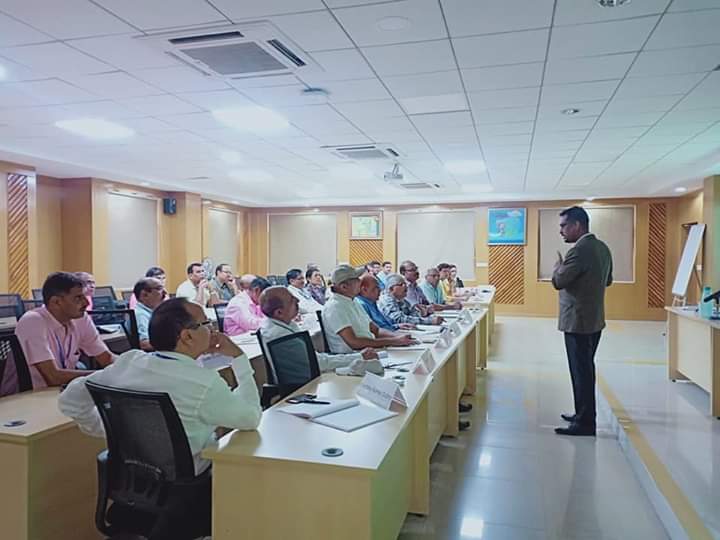What can one do to recover from a ‘failure experience’ and capitalize on it??
The answer to this has come out in various shapes and sizes starting from religious texts to contemporary literature and well addressed by renowned thought leaders for years together now.
The question gains an upper hand again today given the vulnerabilities of the lives we lead. 3 out of 10 scholars today want to explore their entrepreneurial dreams. Businesses are expecting sales professionals to churn up substantial numbers before giving them a hike or elevation in role. Parents are willing to let children explore relatively newer career options which were considered a taboo until a few years back. All these and many such scenarios come with a risk of things not working in one’s favor sometimes, thereby leading to heart burn. Consequently, risk appetite will fluctuate and people will settle for good and not great.
 The fear of failure can curtail a person’s ability to innovate and solve problems efficiently. It can cripple the confidence one carries while executing mission critical responsibilities. There is no other way out, we have to face failures, there is no running away or shielding ourselves from a failure, sooner or later some form of failure will catch up with each of us and that’s nature’s way of teaching us life lessons. The good part of this story is we can use that experience to our advantage. In fact we can convert it into a bigger success if and only if we put in some conscious efforts which I wish to lay out here:
The fear of failure can curtail a person’s ability to innovate and solve problems efficiently. It can cripple the confidence one carries while executing mission critical responsibilities. There is no other way out, we have to face failures, there is no running away or shielding ourselves from a failure, sooner or later some form of failure will catch up with each of us and that’s nature’s way of teaching us life lessons. The good part of this story is we can use that experience to our advantage. In fact we can convert it into a bigger success if and only if we put in some conscious efforts which I wish to lay out here:
a) Emotions matter: When Dr. Kalam’s PSLV space project failed miserably it was an heart wrenching experience. What followed later was historical, bringing India into the forefront of space technology. How Dr. Kalam managed to hold on to his emotions during that period and the way he channelized the outburst led to what we as a country are today. Stephen Covey beautifully puts it, “It’s not what happens to us that hurts us, it’s our chosen response to what happens that hurts us”. Every time we experience failure in any form, there is a surge of emotions that the human mind gets engulfed with. Personality types differ and some display it and some camouflage it. The tendency to have self-pity and negative self-talk can step in instantly if one is not having a ‘Conscious Emotional Experience’ CEE. This means it is ok to let the emotions run through you and it is but human, but not let it take a form which is counterproductive. Find a person whom you trust and pour your heart out. Gallup research identifies ‘Do you have a best friend at work’ a crucial question in its engagement survey. All of us have someone in our lives who will LISTEN to us without judging. When we speak our heart out, we go through CEE and that’s when the thinking brain gains upper hand.
b) ASK Yourself – once emotional tides have turned low, it’s time for some introspection. It doesn’t mean one must rehash the past; it’s about trying to be futuristic. Ask yourself questions like ‘What can you do best if this situation arises again?’, ‘What was a turning point or the tipping point of this failure and your role in it?’, ‘Did you seek help or support from near and dear or a colleague or a boss or a HR partner?’. Questions like these will help you diagnose the crux of the failure and think what can be done to mitigate them in the future. Future proofing is trial and error, one cannot future proof oneself completely.
c) Improve the Status Quo – something in you must change for good. It could be a habit that your harbor which must be shunned, it could be a way of communication that led to this failure which must improve or it could be particular skill which you lacked earlier which led to the failure. This is a must do. Between the past and the present a tangible change has to take place. Take help from your mentor, soulmate or manager and pin point what needs to change in you. This is the most crucial face of the failure experience; this is where your self-belief and self-confidence can shoot up or melt down for good. Cricketing legend Sachin Tendulkar was staring at a bleak future after a ‘tennis elbow’ episode threatened his career. His scoring prowess took a steep downfall, when he came back, he altered his playing style and his approach to the game as well. Yes, he had to let go of something to gain something more and what happened later was history.
In my journey as an HR professional I have encountered numerous setbacks and failures. While there were some great people who held me tight, there were a few who did let me slip. I realized I cannot be at the mercy of someone else when I fail. I am at my own mercy; I can decide how I will treat myself. I have a choice.
Follow the 3 must do’s after a failure every time you encounter it and see how blissful the whole experience turns out to be. Write to me dazil@enableursuccess.com if you are going through failure experience, I am happy to LISTEN!

